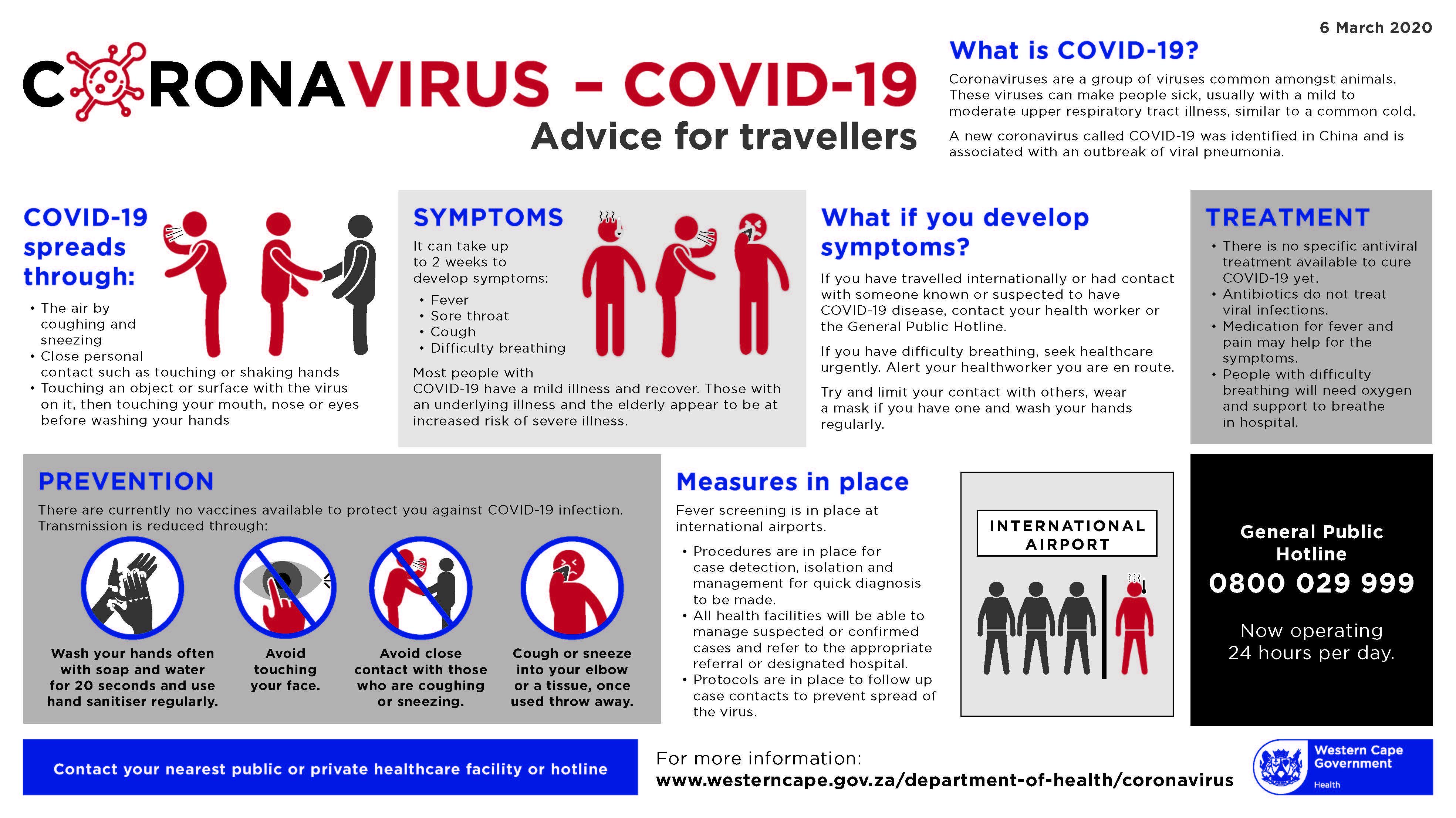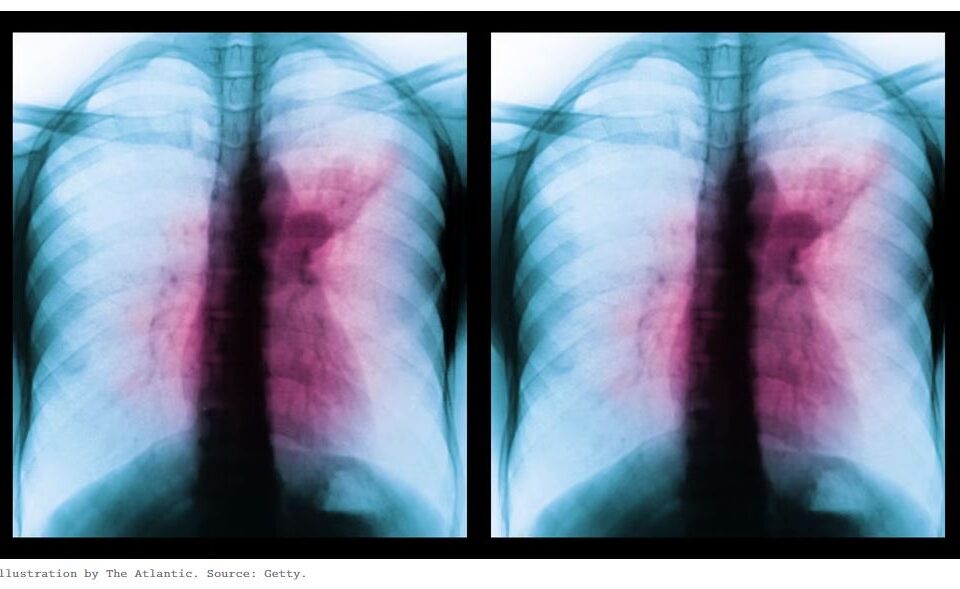


Thousands die from flu every year in SA – how does the common flu virus compare to the new coronavirus?
4th March 2020


Coronavirus disease: COVID-19
16th March 2020 SUNDAY TIMES - March 15 2020
By TANYA FARBER, PHILANI NOMBEMBE and SIPOKAZI FOKAZI
Lockdown is one thing in a developed European country, but experts said this week SA would face massive challenges if it tried to do the same — because winter is on its way, the health-care system is already under strain and the combination of poverty, crowded living conditions and diseases such as HIV/Aids and TB makes containment of the virus difficult.
University of KwaZulu-Natal infectious diseases expert Professor Yunus Moosa said a major viral spread during winter would also create “hysteria ” because “when people will get the normal viruses that go around at that time, they will think they have Covid-19”.
Moosa added: “Your normal winter patients presenting with symptoms will require Covid-19 tests, and those tests are costly so your criteria for doing the test will be messed up by the fact that so many have symptoms.”
By TANYA FARBER, PHILANI NOMBEMBE and SIPOKAZI FOKAZI
Containment steps like Italy’s won’t work, experts say
An entire country on lockdown was the stuff of science fiction until this week when Italy, badly affected by Covid-19, became the first to make it reality.Lockdown is one thing in a developed European country, but experts said this week SA would face massive challenges if it tried to do the same — because winter is on its way, the health-care system is already under strain and the combination of poverty, crowded living conditions and diseases such as HIV/Aids and TB makes containment of the virus difficult.
University of KwaZulu-Natal infectious diseases expert Professor Yunus Moosa said a major viral spread during winter would also create “hysteria ” because “when people will get the normal viruses that go around at that time, they will think they have Covid-19”.
Moosa added: “Your normal winter patients presenting with symptoms will require Covid-19 tests, and those tests are costly so your criteria for doing the test will be messed up by the fact that so many have symptoms.”


Italy — source of the first Covid-19 cases confirmed in SA — has imposed a national lockdown to prevent the spread of the coronavirus, shutting all businesses except essential services. As of yesterday more than 12,000 virus patients had died in Italy. Picture: Antonio Masiello/Getty Images
"Human behaviour is different in winter and lends itself to spreading the disease. We stand closer together and huddle in winter, and we keep the windows shut. This creates breeding grounds for transmission."
Prof Yunus Moosa; University of KwaZulu-Natal infectious diseases expertMoosa added: “Your normal winter patients presenting with symptoms will require Covid-19 tests, and those tests are costly so your criteria for doing the test will be messed up by the fact that so many have symptoms.” Furthermore, “human behaviour is different in winter” and lends itself to spreading the disease. “We stand closer together and huddle in winter, and we keep the windows shut. This creates breeding grounds for transmission.”
Moosa said, however, that the theory of the virus preferring cold to heat and thus proliferating in winter “was not a viable hypothesis”. He said a virus has to be able to thrive at 37ºC to be compatible with the environment of the human body, and that it “doesn ’t survive long outside the human body, regardless of the season”.
He also said there were no studies yet to answer the question of whether HIV and TB patients, who typically have compromised immune systems, would be more susceptible to Covid-19. However, Moosa said he and other experts “suspect that it [Covid-19] might very well aggravate the clinical state” of such patients, thereby putting a heavier burden on the health system.
University of Cape Town professor of pulmonology Keertan Dheda said everything possible should be done to limit transmission among immuno-compromised people such as those with HIV/Aids, lung damage from current or previous TB, diabetes and cancer as they were more susceptible to respiratory infections. “Given our setting in SA, where there is a lot of poverty and overcrowding, it’s going to be difficult to self-isolate in cases of infection. Influenza kills roughly about 10,000 people in SA every year.
“Imagine how things could pan out with Covid-19 … That is why we need to be vigilant at public health level,” he said. Health workers need to keep working during a lockdown, but South African Medical Association chair Dr Angelique Coetzee said the country had too few health workers and they were “already overwhelmed by the burden of disease”.
It was “still not clear” whether doctors who had seen virus-diagnosed patients should be quarantined, said Coetzee. “There is no answer to that question yet. If the infections do become numerous, it will be impossible for [exposed] health-care workers to be quarantined for any amount of time,” she said.
“Even the most advanced countries have battled to halt the spread of the virus. Some are abandoning the 14-day quarantine for health workers, which again risks the spread to other patients.” For taxi drivers, who spend their working lives in close contact with passengers in confined spaces, the prospect of a lockdown is simultaneously comforting and alarming.
Siyabulela Selana, who transports 90 people daily between Gugulethu and Cape Town, said he feared for his life but had to carry on “to put food on the table”. “I am not fully informed because no-one bothers to come and speak to us about it,” said Selana. “Even simple things like pamphlets would [tell us] how it is spread and how to prevent it.”
Fellow driver Lazola Ngqinambi said he had to take cash fares from passengers “with my bare hands … I am scared but there is nothing I can do. I am even contemplating going to my home in the Eastern Cape. I doubt that this virus will reach rural areas.”




